-
-
Tools & resources
It looks like you are using an older version of Internet Explorer which is not supported. We advise that you update your browser to the latest version of Microsoft Edge, or consider using other browsers such as Chrome, Firefox or Safari.
Getting a good night’s sleep with heart failure
Much of the advice given to people with heart failure points out the health-giving benefits of a good night’s sleep. The problem is, for many people with heart problems nights of quality slumber are in short supply. And this lack of rest takes its toll.
Night after night of disturbed sleep can leave us feeling:
- Lifeless
- Unable to concentrate
- Irritable
It can also have far reaching effects on many aspects of our lives, from interfering with our ability to work and lowering our immune systems, to making us more vulnerable to depression.[1]
So why does heart failure get in the way of a good night’s sleep and what can be done to help get the rest we need?
Part of the answer is to do with the effect of heart failure on the body. Because the heart does not pump blood efficiently, fluids can build-up in the body - in the lungs in particular.
This means when you lie down to sleep, the fluid gradually shifts and settles in your body and can end up pressing on your lungs making them congested (think of turning a bottle with some liquid in it from being upright, to lying on its side).[2] This can make it difficult to breathe so that you wake up, or toss and turn in shallow sleep.
If this is what’s happening to you, let your doctor or nurse know. If you have an adjustable bed, try raising the head end of the bed. Alternatively you can prop your head up using additional pillows or a foam wedge, or even raise the head end of your bed by putting some sturdy blocks securely under the legs. This will help to relieve the pressure of the fluid on your lungs and should ease your breathing.
If you are consistently waking up due to shortness of breath, or find you need more and more pillows to breathe easily, you should tell your doctor or nurse because it may be a sign that your heart failure is progressing and adjustment to your current treatment regimen may be needed.
Likewise, if your partner or carer lets you know that you are snoring loudly, or have noisy and labored breathing or that sometimes your breathing is interrupted by gasping and snorting, make sure you ask your doctor to be tested for sleep apnea, a condition sometimes associated with heart failure.[3] Getting advice on managing this type of breathing disruption could improve your quality of life.
There may also be some very practical reasons why sleep is disturbed. For example, taking medicines such as diuretics too close to bedtime could increase the need make multiple trips to the toilet during the night.[4] The easy way to help avoid this is simply to take these medicines earlier in the day – it is important to speak to your doctor or nurse first before making any changes to your medication routines.
Not feeling ready for sleep or being too full after an evening meal are two well-known reasons that get in the way of a good nights slumber for everyone, not just people with heart failure. If this is the case for you, here are three tried and tested tips:
1. Exercise during the day, if you are able
2. If you need to nap during the day, try to take it after lunch
3. Eat your evening meal at least two hours before your turn in for the night
You should not accept broken sleep as part and parcel of having heart failure. Talk to your doctor, nurse or heart specialist, tell them what’s happening and work with them to find a solution. Read our article on managing heart failure for more tips and advice on living with the condition.
As William Shakespeare said “We are such stuff as dreams are made on; and our little life is rounded with a sleep.”
To help you better manage your heart failure symptoms it is important to be aware of the signs and symptoms. If you experience any new or worsening symptoms be sure to let you doctor know.
Related content

7 heart failure life hacks
Top tips to help make your life with heart failure a little easier.

Why do I get breathless?
Why does heart failure cause breathlessness and what can you do about it?

Top tips to fight fatigue
Fatigue or extreme tiredness is a common problem linked to heart failure. In this spotlight we look at why this happens and give some tips to help you fight fatigue and find more energy to get on with your life.
1) Why lack of sleep is bad for your health. NHS choices website. http://www.nhs.uk/Livewell/tiredness-and-fatigue/Pages/lack-of-sleep-health-risks.aspx. Last accessed January 2020.
2) Naughton MT and Lorenzi-Filho G et al. Sleep in heart failure. Prog Cardiovasc Dis (2009), doi: http://www.ncbi.nlm.nih.gov/pubmed/19110135
3) Treatment options for high blood pressure (hypertension). NHS choices website. http://www.nhs.uk/Conditions/Blood-pressure-(high)/pages/TreatmentOptions.aspx. Last accessed January 2020.
